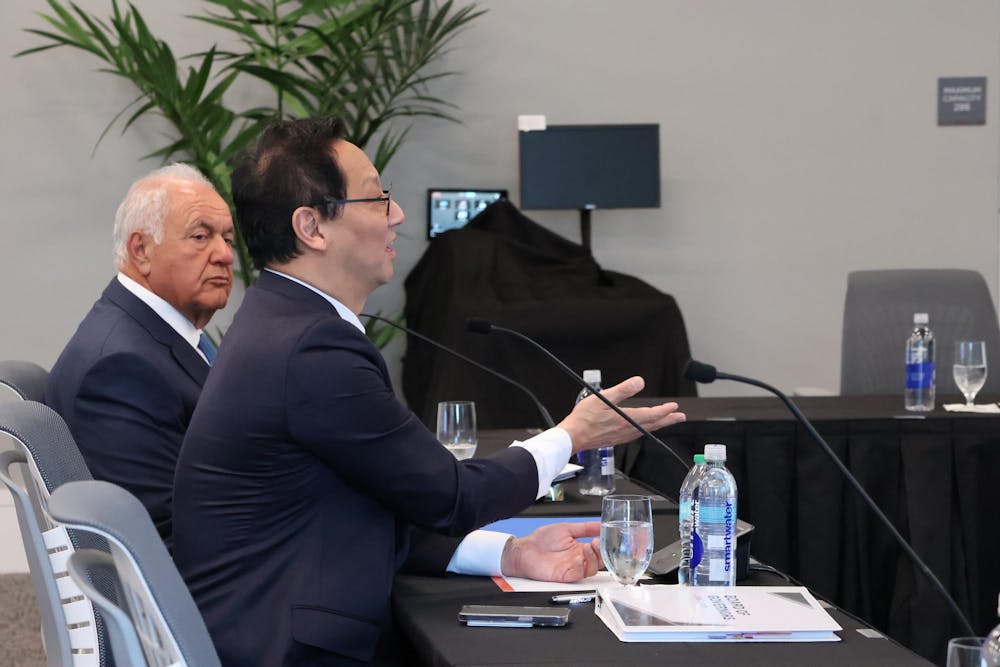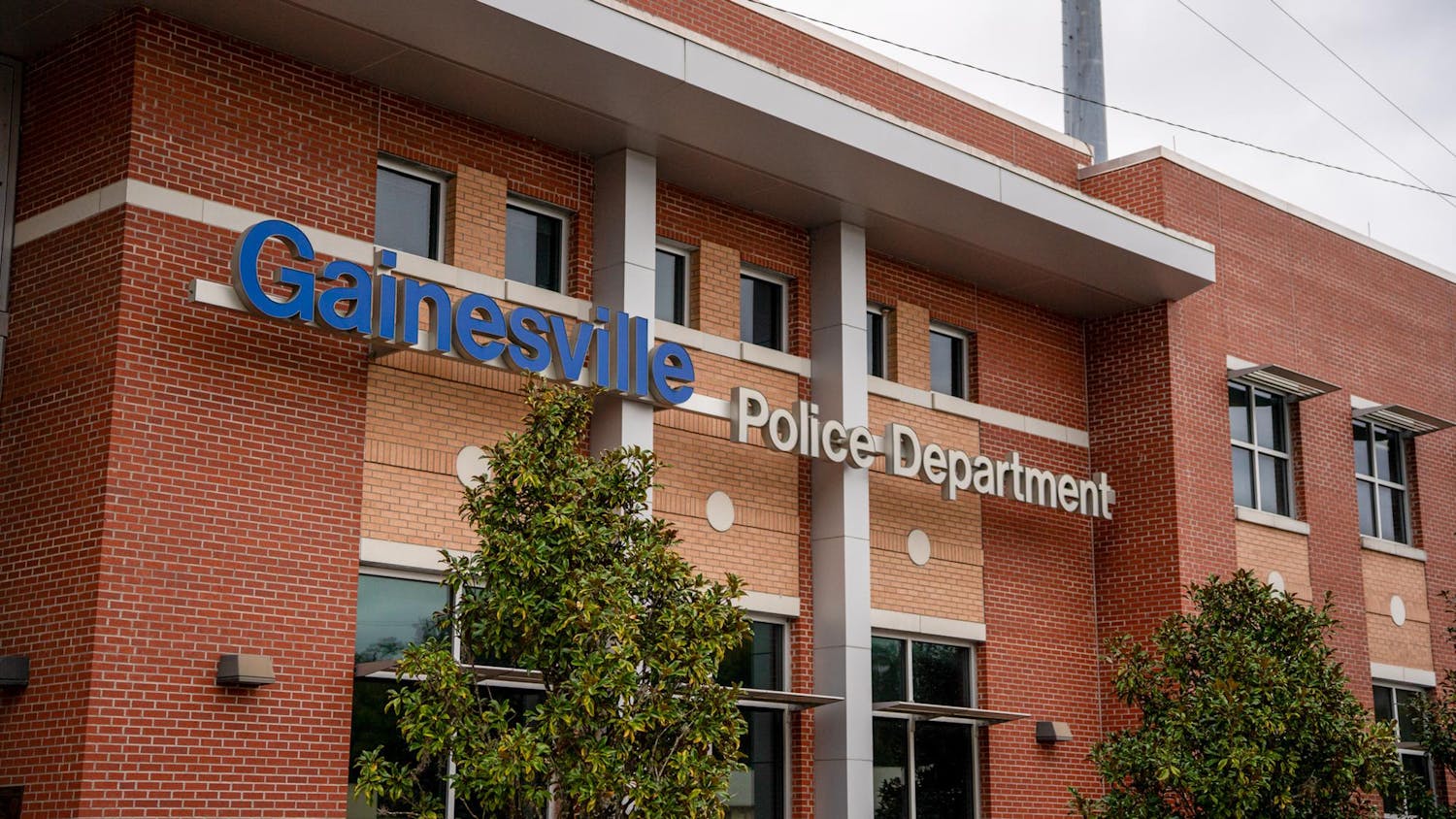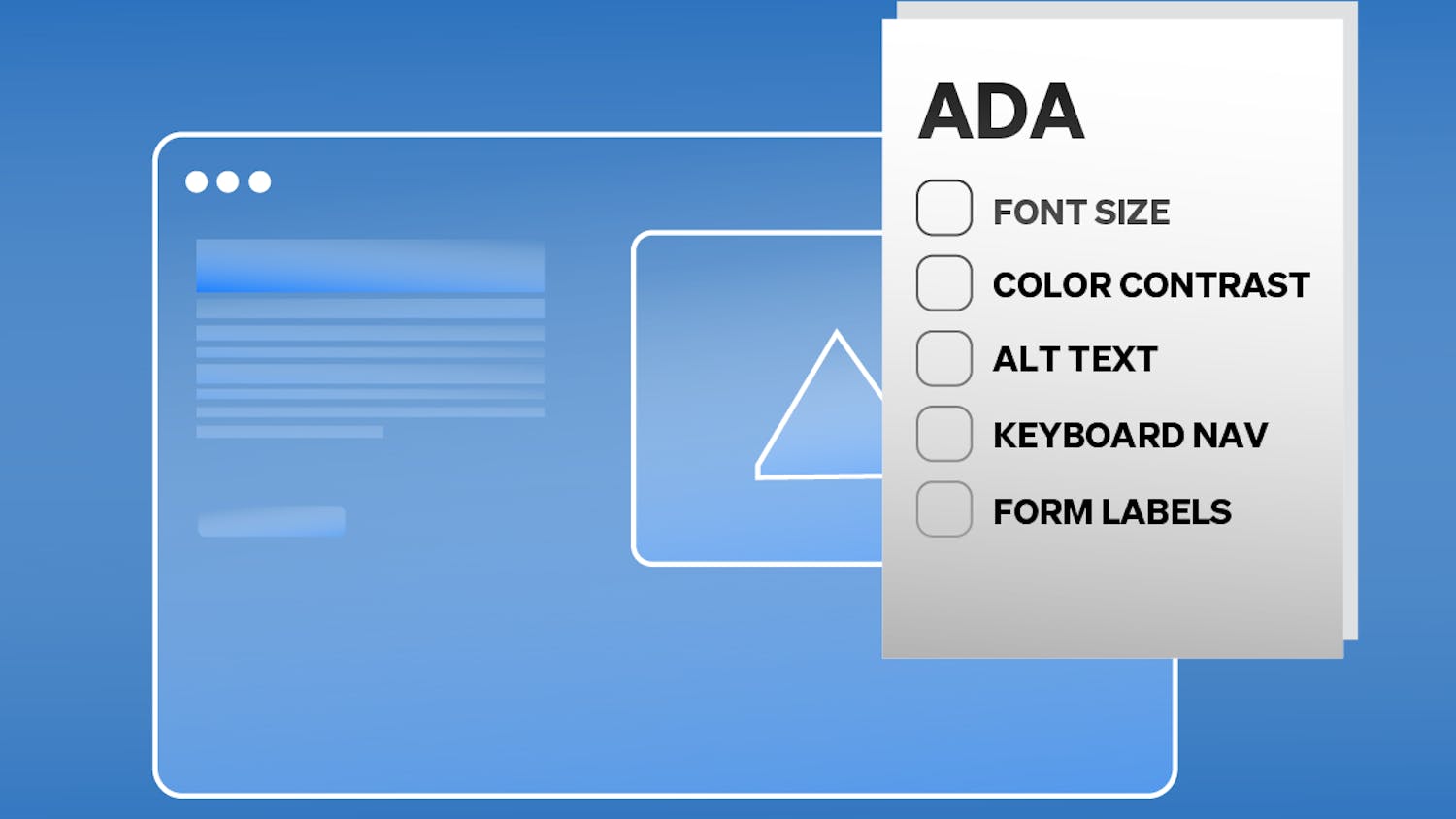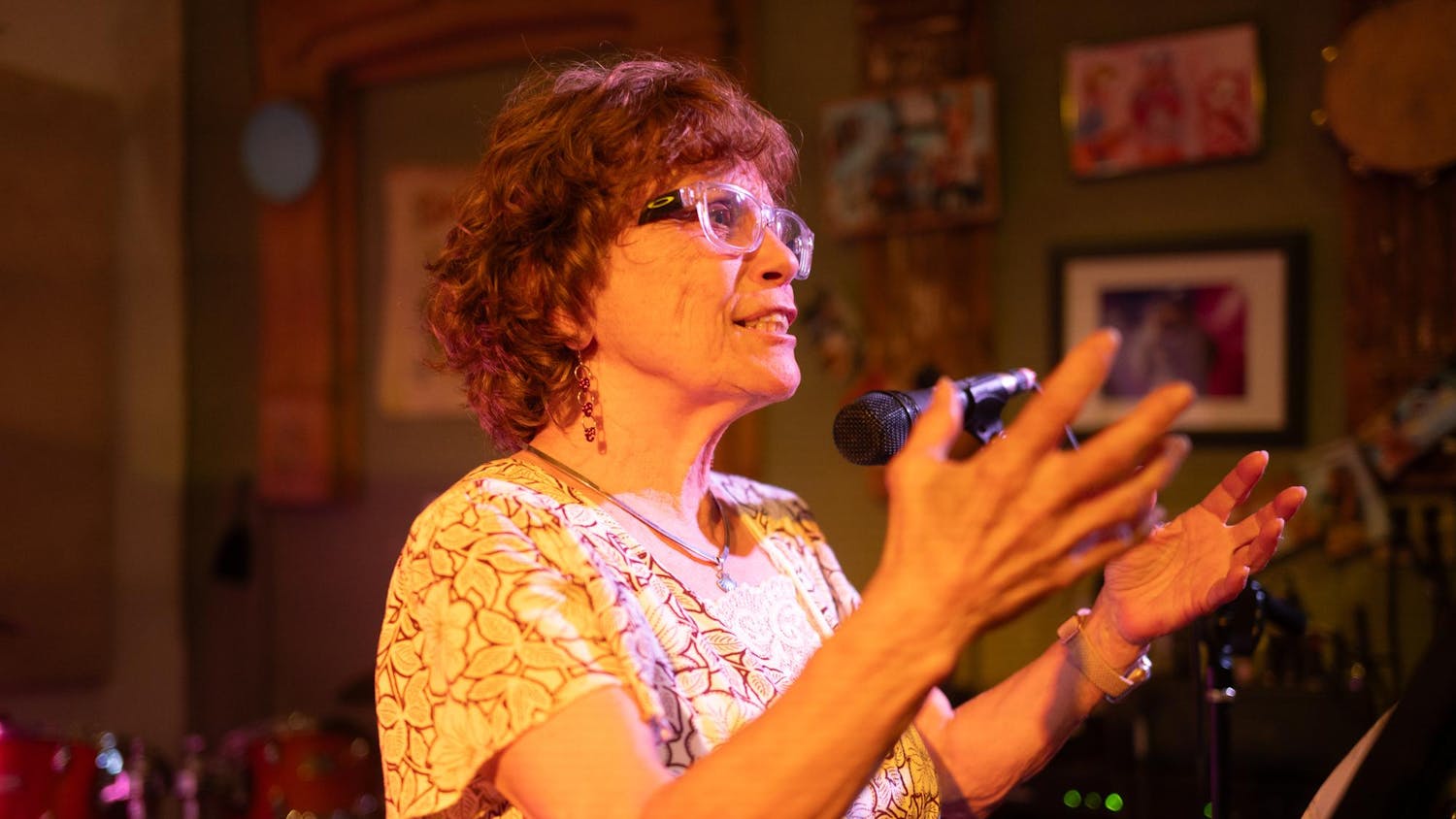The Board of Governors will meet at the University of Central Florida’s downtown campus in Orlando to vote on Santa J. Ono as the 14th president of the University of Florida.
The meeting comes a week after the UF Board of Trustees unanimously approved Ono as president-elect. The search ended one month after the Presidential Search Advisory Committee, which included Board of Governors member Charles Lydecker, named him the sole finalist.
UF Board of Trustees Chair Mori Hosseini will explain how the search committee chose Ono as the sole finalist, share highlights of his background and outline his contract.
Hosseini’s report to the Board of Governors will also address Ono’s position on diversity, equity and inclusion programs, a topic that has drawn significant criticism from many Florida Republicans due to his previous support for DEI before ending such initiatives during his presidency at the University of Michigan.
U.S. Rep. Greg Steube (R-Bradenton) and Donald Trump Jr. both urged the Board of Governors to reject Ono’s confirmation. Other prominent conservatives, such as U.S. Rep. Byron Donalds (R-Naples), called for the search committee to restart the process after Ono was named the sole finalist.
If confirmed by the Board of Governors, Ono is set to begin his term June 4 with a $1.5 million initial base salary under a contract running through May 2030. If rejected, the UF Board of Trustees must restart the search, either publicly or under Florida’s confidential search exemption.
Live Updates:
4:44 p.m.
The board moved into a motion over whether or not to make Ono UF’s next president. The motion failed, thus rejecting his candidacy.
The motion failed. This was the first time a sole finalist of the UF presidential search was not confirmed.
The meeting has adjourned.
4:13 p.m.
Good pivoted the discussion toward critical race theory. He said Ono comes from a far-left world.
He proceeded to ask Ono what he believes anti-racism to be. Ono said he was an immunologist and that this wasn’t his area of expertise.
Good grilled Ono about his personal definitions of whiteness and racism, referencing the anti-racism task force at U-M. Ono did not provide a direct answer.
“To be really clear, I’m a medical scientist and work with test tubes,” Ono said.
“You’re a university president,” Good cut him off.
He referenced one of Ono’s statements, where he said racism is one of America’s original sins. He questioned how Ono would explain to colleagues that he no longer believes in his past statements.
“I have seen the negative consequences,” Ono said. “And I have been inspired by what’s happened in Florida.”
Good brought up gender again. He asked Ono if boys had competed in girls’ sports at UBC and U-M and if either of the universities’ medical schools or programs had “cut off minor boys’ genitals or girls’ breasts?
“I’m not in a position to say,” Ono said.
4:01 p.m.
Governor Patricia Frost, who was also present on Zoom, said she was “ready to vote.”
Governor Carson Dale asked Ono how he’ll involve students in UF’s decision-making.
Ono said he plans on interacting in a variety of ways with students. He expressed interest in meeting regularly with student leaders.
“It’s the students are the reason why the university exists,” Ono said.
Governor Carson Good said the job of a university president is to run a business, fundraise, manage faculty, recruit new professors and lead.
He emphasized the importance of students understanding Western, Eastern and other civilizations’ values and principles.
He asked Ono what American founding principles he believes are most important to teach.
“Part of the role of the University of Florida is to educate our students to become better citizens,” Ono said.
He praised the Hamilton Center as critical to achieving a form of civic education capable of making good American citizens.
3:47 p.m.
Governor Cerio questioned Ono on his statements regarding antisemitism.
“Antisemitism is one of the oldest vices, racisms to have existed,” Ono said. “The predominant situation we have to deal with on college campuses is antisemitism.”
He asked Ono about what changed his thoughts on systemic racism.
Ono said he realized it only divided campuses and institutions.
In response to another question about climate change, Ono believes it’s the responsibility of institutions to do the science, but it’s not the job of the president to make statements regarding it, he said.
Governor Ken Jones, who was present on Zoom, took the floor with more questions. He asked the president-elect about his contract, which will hold him to follow the statements Ono said during the presidential search.
“I believe what’s behind all of those commitments,” Ono said. “I don’t think it will impact or impair my ability to lead.”
Jones then asked if Ono would be comfortable picking leaders who don’t share the same core beliefs he has and have them abide by those values by signing a contract.
Ono said he would look for the sort of individuals who are already there. He praised the Hamilton school for having scientists who align with the values of the school.
3:40 p.m.
Governor Aubrey Edge shifted the discussion away from DEI and toward gender identity, asking Ono for his views on gender.
“There are two: male and female,” Ono said.
Governor Timothy Cerio wanted Ono to clarify the timeline of his past statements and to explain how his view of DEI has evolved.
Ono clarified the timeline of events, including his decision to stop issuing DEI statements in November 2024.
3:32 p.m.
Governor Edward Haddock took the floor and said he didn’t have any new questions.
“In [the Board of Trustees] meeting, he got grilled for 2 hours,” Haddock said.
He believed Ono was the most qualified candidate and admired his patience in the process, he said.
“I thought for the first half of the proceeding that everybody was against him because of the questions they asked,” Haddock said.
He returned the discussion to DEI, stating that America didn’t get rid of diversity, equity and inclusion, but the programs became oppressive and ruled out equality.
“I believe the direction of Florida is the right one,” Ono said in response.
3:20 p.m.
Silagy turned his final question to Hosseini, asking if he was satisfied with the search committee’s thoroughness.
Hosseini said that he is absolutely satisfied.
He defended Ono, criticizing the board’s interrogation and implying it wasn’t fair.
“The Board of Trustees are there as a backstop,” Hosseini said. “If this man doesn’t do what he says he’s going to do, we’re there.”
He felt the board had been unfairly harsh to Ono, he said.
“You all decided today is the day we’re going to take somebody down,” he said.
Silagy asked whether Floridian candidates were considered, to which Hosseini said several had, including a member of the board.
The governor asked him who on the board had been considered for the position. Hosseini named Paul Renner.
Renner hurried to defend himself.
“I have no intention of being president of UF,” Renner said. “If it were offered to me, I would reject that.”
He said he was approached by a member of the UF Board of Trustees to speak with Hosseini.
The meeting grew heated, but Renner said he is committed to the Board of Governors.
3:10 p.m.
Governor Kimberly Dunn praised Ono’s accomplishments.
“For someone to have so many academic and administrative accomplishments and still have the humility that you present yourself with is very inspiring,” Dunn said.
She asked Ono about his views on the role of faculty and how he will continue to facilitate UF’s rise to being a top public university.
Ono said he will continue acting as a faculty member, saying the faculty is the core of every institution.
Eric Silagy went on to ask if university presidents are bound to follow federal and state laws.
“I have a responsibility to the state and this Board of Governors to support all the laws put forward by the board and state,” Ono said.
3:02 p.m.
The meeting resumed.
“We’re at the board of governors, we’re not at the Supreme Court,” Chairman Lamb said. He told Ono to respond to the best of his ability regarding any material that wasn’t given to him beforehand.
Governor Jose Oliva spoke first, once again bringing up Ono’s previous support for DEI.
Ono reiterated that he evolved based on his experience over time.
Oliva asked again what science he based his support of DEI on, citing Ono’s prior enthusiasm.
The governor then asked if Ono believes “there should be an absence of whiteness in the university system.”
“Absolutely not,” Ono said.
Oliva referenced a pledge that deans at the University of British Columbia signed, stating that eurocentrism has dominated to the detriment of BIPOC communities.
“I don’t recall forcing people to do things,” Ono said. “But I believe currently that ideology is wrong and divisive.”
Lydecker injected again, asking if Oliva had specific documents for the board to review. The two had a quick back-and-forth before Chair Lamb stopped them.
Oliva continued his line of questioning, asking Ono about his statement on democracy being under threat locally and nationally.
Ono cited a cyber attack on U-M, saying those are the kinds of threats jeopardizing democracy.
Oliva questioned whether Ono believes a university should involve itself in K-12 education and how he plans to do so.
“The University of Florida has the number six rank for the school of education,” Ono said. “It’s really important for schools like the University of Florida to reach into schools to strengthen our democracy.”
2:51 p.m
The chair called for a 10- minute bathroom break.
2:34 p.m.
Paul Renner, a member of the Board of Governors, questioned Ono on public records that he shared on his X account.
He cited an article from the Michigan Daily about a DEI 2.0 plan that would take effect at U-M.
Ono continuously restated that he didn't initiate the DEI 2.0 plan, and it was already set before he became president of U-M.
Renner made Ono read out a statement he made on the one-year anniversary of DEI 2.0, which stated that diversity, equity and inclusion are core values of the university.
Ono said he didn’t remember what he was referring to in the past statement, adding that he didn’t know he was going to be questioned on this statement.
Chairman Lamb said the board should have given Ono materials he’d be questioned on.
Lydecker said it’s unfair to interrogate a candidate who didn’t have a chance to review materials beforehand, as if it were a court of law. The goal is to ratify a candidate, not interrogate him.
“This does not feel fair to me,” Lydecker said.
Jose Oliva, a member of the board, disagreed.
“There is an absolute need to understand what Ono believes,” Oliva said. “We’re asking someone to lead a flagship university.”
Lydecker interjected, saying it’s unfair for Ono to respond to questions about materials he doesn’t have.
Renner brought up a document from AACU stating that government overreach is endangering American higher education. He asked Ono to confirm whether he was a signatory of the document.
Ono said he did not sign it initially and was criticized for it. He’s no longer a signatory because he removed his name.
Renner confirmed that he removed his signature after Ono was announced as the sole finalist.
Ono said he wanted to show he’s in line with Florida’s values and that no one from UF asked him to remove his name.
The president-elect was questioned by Renner on his views on systemic racism.
Ono said he doesn’t believe America is systemically racist, and that he thinks that sort of ideology is divisive.
2:25 p.m.
Levine asked Ono about his lack of response to the October 7 attack in his address to U-M on October 9.
Ono condemned Hamas in a campus-wide email and thus didn’t think he needed to say the same thing in multiple venues, Ono said.
After a series of protests, Students Allied for Freedom and Equality, an affiliate of Students for Justice in Palestine, received a Martin Luther King Jr. Spirit Award. Ono said awards given to pro-Palestinian groups on campus were not issued by U-M administration and are decided by individuals in campus life and faculty.
He said such groups never should have been given awards, and SAFE has been banned from campus for two years.
Levine also brought up Ono condemning actions against the Black Student Union after its posters were torn down but did not forcibly condemn pro-Palestine protests.
“They were different kinds of situations,” Ono said.
Still, he agreed he should have been more forceful in his response.
Levine used Sasse as an example of a strong response to student protests after October 7.
He then referenced an audio recording where Ono said there is an ‘imbalance’ regarding how antisemitism and islamophobia are treated on campus.
Ono responded by saying that his statement was inspired by a doxxing incident regarding Muslim students on campus. Regardless, he promised to eradicate antisemitism on campus.
“Antisemitism will not rear its head again,” Ono said.
Levine's last question regarded the costs of college degrees. He enquired about Ono decreasing U-M’s budget while increasing tuition over his years of presidency. He questioned why he shifted the money to student-facing programs instead of using the money saved from DEI initiatives toward reducing student tuition, which is triple the tuition of UF.
Ono highlighted the Go Blue Guarantee program at U-M, which provides full tuition for need-based in-state students and scholarships in nursing and education.
“Most of the money was really focused on addressing affordability through scholarships,” Ono said.
2:15 p.m.
Levine enquired about U-M Health offering services and advocating for transgender healthcare for children. He asked Ono about his beliefs on what stance UF Health should take in gender-affirming care.
Ono said U-M is assessing the situation as a response to presidential orders.
“I will support the laws of the state of Florida,” Ono said.
1:55 p.m.
The floor opened for questions.
Vice Chair Alan Levine quoted Ono about his stance on supporting meritocracy during the Board of Trustees meeting. He brought up a tweet by Ono where he wrote he was deeply disheartened by the Supreme Court’s decision to uphold the banning of race-based admissions.
The DEI 2.0 program caused him to change his perspective, Ono said in response.
“Do you believe that test-optional is the right policy, or do you believe in holistic admission?” Levine further questioned.
Ono said he believes that standardized testing is important because admissions decisions should be made upon merit.
Levine’s second question addressed what he called “the insidious nature of DEI.” He enquired about an email from the U-M provost saying that DEI is one of Michigan's values.
Levine went on to ask whether Ono directed that DEI be removed from Michigan’s core values. He listed his core values from the U-M website, which included diversity, equity and inclusion..
“They are removed now,” Ono said. While references to DEI are still on UF websites, such as the university’s union website, he reemphasized his desire to end those programs.
Levine brought up undergraduate courses regarding race and ethnicity that are required for different U-M programs, such as its business degree. He asked if Ono directed the provost to eliminate those courses.
Ono said the audit process is ongoing but will also continue that direction at UF.
1:40 p.m.
Charles Lydecker, a member and representative for the Board of Governors, closed comments. He stated that Ono was the most qualified and competitive finalist.
“The search process was thorough and highly professional,” Lydecker said. “Dr. Ono stood out not only for his credentials, but his strategic vision.”
He outlined how the SP&A Executive Search team uploaded public articles regarding Ono’s involvement with DEI and antisemitism to ensure the selection process was transparent. It also included information about his mental health.
“Ono's decision to pursue this role is not something we should overlook,” he said. He didn’t need to take this path, he chose it.”
He read from a letter written by Jonathan Greenblatt, CEO and national director of the Anti-Defamation League, that praised Ono for supporting Jewish students and his response to antisemitism on campus.
Addressing concerns regarding Ono’s shift in views on DEI, he reminded board members the board itself accepted DEI initiatives as recently as 2020.
“Should we punish someone for evolving, especially when the person has led one of the nation’s best universities to a course that matches our own?” Lydecker said.
He concluded by saying that cancel culture is unjust and that cancelling Dr. Ono would be unfair.
1:35 p.m.
He pivoted to his support for ending DEI programs at UF.
“I am here to ensure DEI never returns to the University of Florida,” he said. He discussed how U-M eliminated its DEI offices, a move he has said was inspired by similar moves in Florida.
Ono said he will create an institutional neutrality policy, keeping his personal views separate from his presidency.
“Science will lead, not ideology,” he said. “I want to come to Florida, not to slow reform, but to accelerate it.”
Closing out his address, Ono outlined twelve commitments he intends to keep if made UF’s president: keeping UF resources apolitical, ideological neutrality, admissions, scholarships and hiring to only be based on merit, auditing UF spending and canceling DEI spending, UF leadership aligned with Florida state leadership, strengthening the post-tenure review process, eliminating waste and inefficiency, and upholding state laws in university regulations.
“What makes UF distinct is its courage,” Ono said. “UF stands like a beacon for academic excellence.”
1:30 p.m.
Ono began his address.
“I am deeply honored to have been unanimously selected by the search committee and confirmed by the Board of Trustees,” Ono said. “It's a privilege to join an institution that pursues excellence but also sets the national standard.”
Ono outlined his vision for UF, including six core themes: to lead in interdisciplinary work, advance the state’s prosperity through public service, retain global talent, integrate research with the student experience, modernize infrastructure and secure national leadership through competitive funding.
“At Michigan, we did respond [to antisemitism], it was difficult at first, strongly after October 7,” he said.“Antisemitism is not just another bias, it’s dangerous and insidious. It’s a distinct threat. It’s not a partisan issue, it’s moral and deeply personal to me.”
1:21 p.m.
Public comment came to a close.
UF Board of Trustees Chair Mori Hosseini began his address to the Board of Governors by calling Ono one of the “most respected leaders in higher education” and how they are “lucky to have him.”
Hosseini said Ono’s experience is invaluable.
“UF presidency is not a position where someone can learn on the job,” Hosseini said.
Ono does not represent an intrusion of DEI into Florida education, he said.
He said Ono has seen firsthand how liberal orthodoxy failed higher education by compromising academic rigor and eroding public trust.
“The Florida model, rooted in merit, viewpoint diversity, viewpoint diversity and the rejection of polarizing ideology, resonated with [Ono],” Hosseini said. “He wants to be part of it.”
The Board of Trustees chair drew comparisons between Ono and former political leaders like Ronald Reagan and Clarence Thomas, whose political alignments shifted over the course of their political careers.
“This isn’t a compromise. It's a confirmation that our values are resonating,” Hosseini said.
1:15 p.m.
Kent Fuchs said he trusts Ono’s credentials and track record, calling him a “warm individual” who will be able to connect with UF students.
“Dr. Ono is an accessible person who leads with warmth and courage. He will lead our system as well as our university to the next level,” Fuchs said.
Fred Ridley, a member of the UF Board of Trustees, said the board unanimously voted to confirm Ono for a reason. He believes Ono is a kind and thoughtful person with a “high IQ and EQ,” he said.
“Look past all the noise, listen to him today, and do what’s right for UF,” Ridley said.
Blake Cox, the current student body president at UF, said he strongly supports Ono. He praised his qualifications and attempts to establish relationships with Jewish students.
“It's absolutely imperative that you approve of Dr. Ono today,” Cox said.
Katherine Burgess, a UF alum, said Ono’s ideological development is fascinating and asked him to explain how he shifted views so quickly between his time at Michigan to now.
“At Michigan, Jewish students were told to hide and stay quiet as radicals took over,” said Wendy Nissan, a mother of two UF students. She said Florida doesn't need someone who’s folded under pressure in the past.
Adriana McLamb, the marketing director for Independent Women's Voice, a right-leaning non-profit, said Ono believes in climate extremism and gender politics, something she said her son should not have to experience in Florida education.
“This is not what Florida families want,” McLamb said.
1:14 p.m.
Mike Sanderson said Ono critics failed to understand what good university governance and financial management require.
“Presidents need experience,” Sanderson said.
Rahul Patel served as chair of the Presidential Search Advisory Committee and on the UF Board of Trustees. He spoke in support of Ono’s appointment due to his previous experience.
“I wouldn’t have invited him unless I was convinced that he was 100% aligned with the ideology of the state,” Patel said.
He added that Ono aligns with Florida’s ideologies and can deliver the board’s vision to be the best public university in America.
Michael Okun, a UF professor, defended Ono against claims that he failed the Jewish community in his previous roles.
“I know antisemitism when I see it,” Okun said. “Dr. Ono is an ally to the Jewish community.”
He cited Ono’s meeting with UF Hillel as proof of his support.
“We need someone who will bring this university to the next level,” he said.
1:10 p.m.
Joshua Rubin, a professor at U-M medical school, said Ono represents a trend of hypocrisy in Florida administration officials, including Ben Sasse.
Steven DeRose urged the Board of Governors to vote against Ono and questioned if all members receive a complete report of his past actions.
“UF needs the anti-DEI 2.0 president,” DeRose said. He added that Ono will appoint “ideologues to do his bidding" to fill the five dean vacancies in the university.
1:05 p.m.
Gerard Filitti was first in line for public comment. He said that Ono “failed miserably” at the University of Michigan to stop antisemitism and listen to Jewish students on campus.
“I ask that you strongly and unequivocally reject the appointment of Santa Ono,” Filitti said.
1:02 p.m.
Brian Lamb, Board of Governors chairman, kicked off the meeting. Several governors have joined the meeting via Zoom. Thirteen speakers will be called upon for public comment.
12:56 p.m.
Ono has entered the meeting room along with Fuchs and the Board of Trustees.
12:24 p.m.
UF Interim President Kent Fuchs arrived for the meeting and signed in.
Doctor Phillips Academic Commons, 12:08 p.m.
An hour before the meeting is set to begin, attendees entered the building and began to sign in, including UF Board of Trustees member Rahul Patel. There is a heavy police presence around UCF’s downtown campus.
Contact Koushin Unber, Maria Avlonitis and Avery Parker at kunber@alligator.org, mavlonitis@alligator.org and aparker@alligator.org.
Avery Parker is an English and History senior and the Spring 2026 El Caimán editor for The Alligator. He previously worked as The Alligator's University desk editor, as well as a reporter for the University and Enterprise desks. He doesn't know the meaning of the word "freetime," but he can usually be found deep in an archive reading 19th century documents or tending to his four cats.
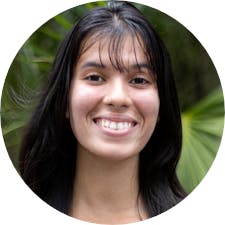
Maria is the Fall 2025 university editor of the Alligator. She previously worked as the university administration reporter Summer 2025. Maria enjoys walking her dog, and on the rare occassion she has free time, she loves attempting to garden and salsa dancing.


